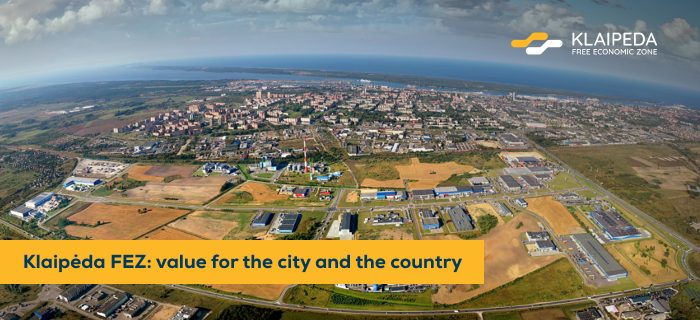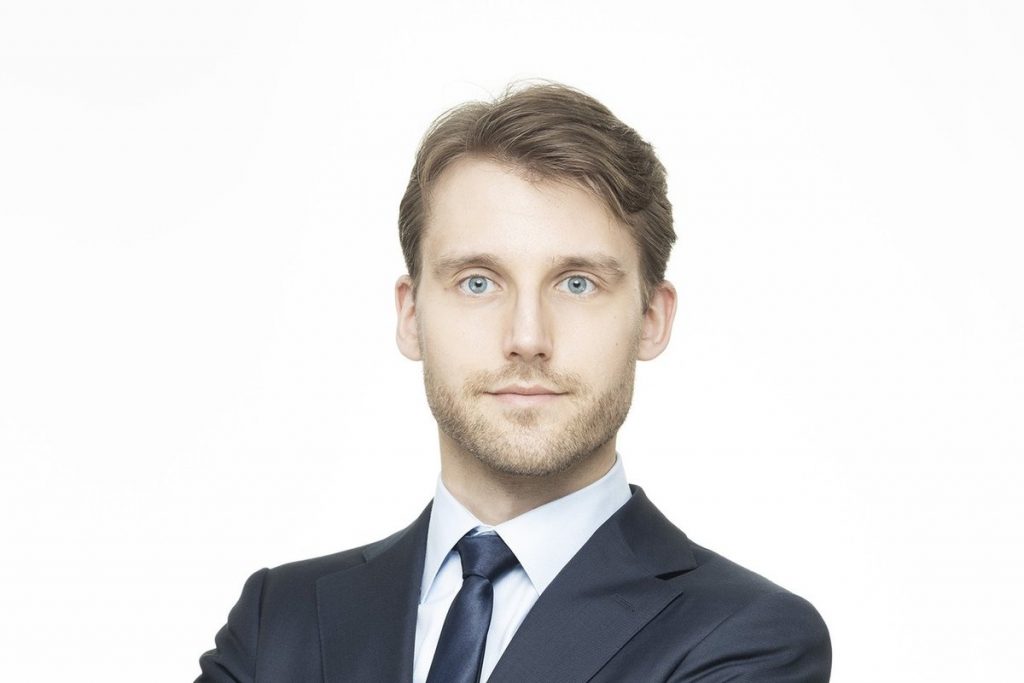News & Events
Watch our activity in one place
Klaipėda FEZ: half a billion in taxes for the city and the state

Over the last 10 years, investors operating in the Klaipėda FEZ have paid EUR 66 million in personal income tax, the majority of which has gone to the city budget. During this period, FEZ investors also paid EUR 500 million in VAT and social security taxes for the state budget.
In 2022 alone – the latest year for which detailed data is currently available – Klaipėda FEZ investors paid EUR 12.9 million in personal income tax. As the majority of Klaipėda FEZ employees are Klaipėda residents, the majority of this tax went to the Klaipėda City Municipality budget.
In addition, in 2022 alone, Klaipėda FEZ investors paid EUR 80 million of value added tax and another EUR 14 million of social security taxes to the state budget. The total tax contribution of Klaipėda FEZ companies to the city, state and social security budgets over the last 10 years amounted to almost EUR 567 million.
In comparison, the total state aid to Klaipėda FEZ companies over the last decade amounted to EUR 53 million. In other words, the direct tax value of investors’ activities alone has exceeded state support by more than 10 times over this period. And in 2022 alone, Klaipėda FEZ investors have paid twice as much tax as they have received in support over the last decade.
According to Eimantas Kiudulas, the CEO of Klaipėda FEZ, free economic zones are a great example that investments made by the state and the cities in the creation of businesses and new jobs pay off several times over if such projects are implemented professionally. According to him, another interesting detail in the Klaipėda FEZ figures is the consistently improving ratio of support received to taxes paid. For example, in 2016, FEZ companies paid EUR 32 million in taxes and received five times less, i.e. EUR 6 million in state aid. In 2021, the ratio was already 8 times and in 2022 it was 13 times. In other words, while Lithuania and the municipality continues to provide various subsidies to FEZ investors, the “return” on these investments in the form of taxes constantly improves.
“High and growing taxes, which outstrip state support by a factor of several times, prove that establishing and maintaining free zones was the right choice for Lithuania. On the other hand, tax incentives have not been a priority for investors around the world for some time now – they are looking first and foremost for talent, expertise, infrastructure and business community. Lithuania is no longer a country of cheap labour, and the fact that investors still choose to create and grow value here is a great achievement for the state, our city and for each and every citizen of Klaipėda,” comments E. Kiudulas.
The claims regarding the labour cost factor are also illustrated by the latest detailed wage statistics, according to which the average salaries in the FEZ investors’ companies in 2022 were 26% higher than in Klaipėda County as a whole and 17% higher than among the county’s manufacturing companies. Moreover, the average salaries of Klaipėda FEZ investors were even a few euros higher than the overall average in Vilnius, Lithuania’s capital and business hub.
E.Kiudulas also points out that the figures mentioned above refer only to direct taxes of FEZ investors, although the real impact of the territory’s business community on the economy and the state is even greater. For example, in 2022 alone, FEZ investors purchased more than EUR 500 million worth of goods and services on the Lithuanian market, and as much as EUR 2.7 billion in the last decade. All of this translates into orders, wages and taxes for hundreds of other businesses in the coastal region and across the country – suppliers of a wide range of goods and services to the FEZ companies.
“Klaipėda FEZ’s ongoing transformation from a traditional manufacturing area to an ecosystem of R&D, product development, innovation and high added value is yielding obvious results for the city and the country. But the biggest challenge of this development is further nurturing, attracting and retaining talents. Over the last decade, we have seen a number of established FEZ companies start innovative activities, and we have also attracted some high value-added companies, but it is the supply of talent and the quality of life in Klaipėda that will determine whether we will be able to maintain a similar pace in the next decade”, says Kiudulas, noting that the Klaipėda FEZ is home to investors from both foreign and Lithuanian capital.
Reducing the value-added gap
Attracting new investment remains critical to the country’s development – the Lithuanian economy is still 2-3 times behind the leading EU countries in terms of both gross domestic product per employee and salaries. Therefore, free economic zones, which help to attract higher value-added industries than the overall national average, are important to narrow this gap as soon as possible, says Marius Stasiukaitis, Head of Strategy at Invest Lithuania, the national FDI agency.

“Klaipėda FEZ is one of the longest and most successful industrial territories in Lithuania, with a concentration of high value-added industrial businesses. The chosen direction of developing an ecosystem based on advanced manufacturing competences and innovation is also important for Lithuania’s overall competitiveness. Competing on low costs alone is a road to nowhere. There is more than one country in the CEE region that can offer significantly lower costs than Lithuania.
Klaipėda’s strategic position is also important, as it has great potential to be one of Lithuania’s green technology hubs. This is due both to the strategic position of the seaport and to the potential of the Baltic Sea for renewable energy development. However, this requires decisive steps by both the state and the region – a clear vision and strategy on how we plan to become a centre of green competences. The country’s generic strengths – infrastructure, talent or business environment – will not be enough to attract innovative, strategic green technology and manufacturing companies,” comments M. Stasiukaitis.
